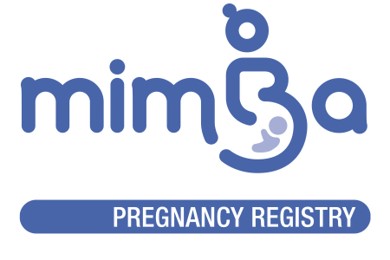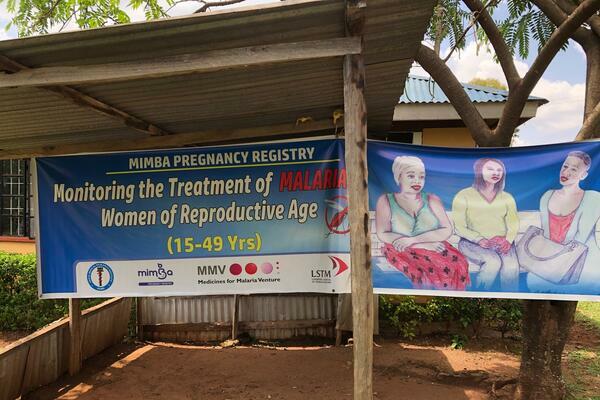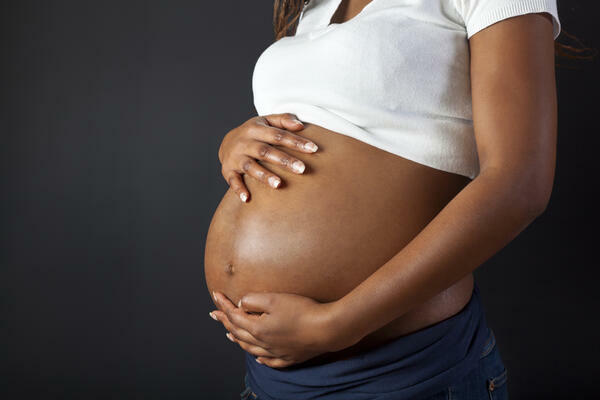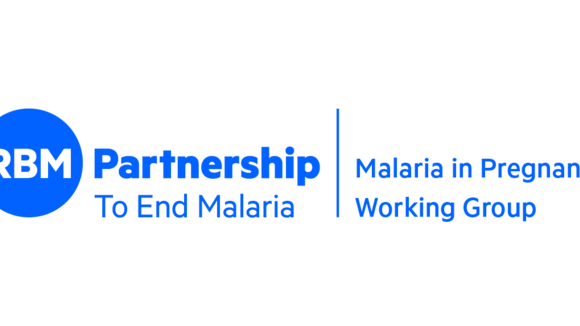
Malaria in Mothers and Babies Pregnancy Exposure Registry - MiMBa

The Malaria in Mothers and Babies (MiMBa) Pregnancy Exposure Registry is a multi-country observational study with the aim to generate robust safety data on the use of the antimalarial Artemisinin-based Combination Therapies (ACTs) in all trimesters of pregnancy with a focus on the first trimester.

Currently there are limited treatment options for pregnant women who get malaria during the first trimester due to the limited available data on the safety of most antimalarials used during pregnancy - as for drugs targeting infectious diseases in resource-limited settings - and the fear of harming the unborn baby. Developing surveillance systems to assess the safety of these drugs in pregnancy is critical.
Until recently, quinine was the recommended treatment for malaria in the first trimester, yet it has significant side effects, a lengthy and complex treatment course and is no longer widely available. In many cases, women in the early stages of pregnancy are inadvertently treated with artemisinin-containing antimalarials, which are given to the adult population, either because they were unaware or did not wish to disclose they were pregnant. A recent review of all studies assessing the safety of artemisinin-containing antimalarials in the first trimester of pregnancy found that there was no increased risk of adverse pregnancy outcomes than non-artemisinin-based treatments, including quinine-based regimens. Importantly, artemether-lumefantrine, the ACT with the most safety data, was associated with 42% fewer adverse pregnancy outcomes (pregnancy loss or major congenital malformations) than oral quinine in the first trimester. Based on this evidence, in November 2022 the World Health Organization updated its guidelines for the treatment of malaria in the first trimester from quinine to artemether-lumefantrine. Other ACTs (including artesunate-amodiaquine, artesunate-mefloquine and dihydroartemisinin-piperaquine) can be used where artemether-lumefantrine is not available. However, more data are needed on a wider range of ACTs, including the newer ACTs.
Developing a registry
The overall aim of the registry is to generate robust data on the safety of antimalarials in pregnancy to inform regulators and policy makers and support informed decision making by healthcare providers and pregnant women needing treatment for malaria. Several steps have been identified to accomplish this aim
1) Development of a suitable surveillance methodology adapted to malaria endemic country settings;
2) Selection of suitable sites to enable collecting exposure data on a wide range of antimalarial of interest to the registry;
3) Implement field activities and data collection to generate robust evidence on first trimester exposed pregnancies with an infant follow up to 12 months post-delivery;
4) Support marketing authorisation holders to submit new data to relevant regulators and
5) Share the new evidence to the World Health Organization to inform ongoing review of treatment guidelines.
Data collection
To capture robust data on the safety of a range of antimalarials in pregnancy, multiple sites have been set-up in several malaria-endemic countries to follow women through pregnancy to delivery and infants up to one year of age to capture outcomes such as live births, miscarriages, stillbirths, major congenital anomalies and maternal and neonatal deaths.
This is an observational study capturing data on diagnoses and medicines provided through routine care services in the public and private sectors.

MiMBa Pregnancy Exposure Registry - Methodology
This is an observational study collecting data on drugs provided through routine health care services. To capture safety data, several sentinel sites have been set up in malaria-endemic countries to follow women from the moment the pregnancy is identified and capture pregnancy outcomes (i.e. miscarriage, stillbirth, live birth). The sites are providing pregnancy tests to enable early pregnancy detection and referral to antenatal care to capture early miscarriages.
Current activities
- Data collection is ongoing in three sites in western Kenya (Homa Bay sub-county, Mfangano and Rusinga islands) and two sites in Burkina Faso (Nanoro and Soaw). These sites include 40 health facilities, and approximately 70,000 women of childbearing age are invited to participate in the study.
- As of December 2022, over 60,000 women (15-49 years) were enrolled in the study, and over 12,000 pregnancies were detected in this cohort.
The team is actively looking for additional eligible sites, and data collection will be ongoing until at least 2024. If you are interested in participating in the registry, please contact Clio Whitby at LSTM
Read the MiMBa Pregnancy Registry protocol (identifier: NCT04825782)
Collaborators

- Liverpool School of Tropical Medicine (LSTM): Dr Stephanie Dellicour (co-Chief Investigator), Prof Feiko ter Kuile (co-Chief Investigator), Dr Jenny Hill (co-Investigator)
- Medicines for Malaria Venture (MMV): Dr Wiweka Kaszubska, Dr Stephan Duparc, Dr Tim Wells
- WorldWide Antimalarial Resistance Network (WWARN): Prof Philippe Guerin, Dr Kasia Stepniewska
- Kenya Medical Research Institute (KEMRI): Dr Simon Kariuki (Kenya co-Principal Investigator), Dr Hellen Barsosio (Kenya co-Principal Investigator), Dr Benard Omondi
- Institut de Recherche en Sciences de la Santé (IRSS): Prof Halidou Tinto (Burkina Faso co-Principal Investigator), Dr Innocent Valéa (Burkina Faso co-Principal Investigator), Dr Toussaint Rouamba
Project news and updates
KEMRI scientists examine safety of anti-malarial drugs in first trimester of pregnancy
Kenya’s Citizen TV and its Newsnight programme reporting on the work currently being undertaken in Kenya by KEMRI scientists as part of the MiMBa project to examine safety of antimalarial drugs in first trimester of pregnancy. The segment includes an interview with Dr Hellen Barsosio, the co-Programme Investigator for Kenya.
Meeting the needs of pregnant and lactating women: MMV's MiMBa strategy
This is the story of Dianah and Elizabeth, a Kenyan mother and daughter who were affected by malaria during Dianah's pregnancy.
The harrowing journey that Dianah and Elizabeth went through is sadly not a rare one. Each year, around 130 million pregnancies occur in malaria-endemic regions, putting pregnant women and the babies they are carrying at severe risk of health complications like anaemia, severe malaria, low birth weight and even death.
MMV's Malaria in Mothers and Babies (MiMBa) strategy aims to improve access to appropriate medicines for pregnant and breastfeeding women and newborns affected by malaria. MMV implements its MiMBa strategy through collaboration with global partners in the malaria community by improving drug coverage, providing information and generating data on the safety of existing antimalarial medicines in pregnancy.
Other related projects
Read more about MMV’s MiMBa: Malaria in Mothers and Babies project
Find out more about the work of the Study Group on the safety of artemisinin-based therapies for treatment of malaria in the first trimester: IPD meta-analysis update
Contact us
For more information about the project contact Clio Whitby, Programme Coordinator for the MiMBa Pregnancy Registry at LSTM. clio.whitby@lstmed.ac.uk

